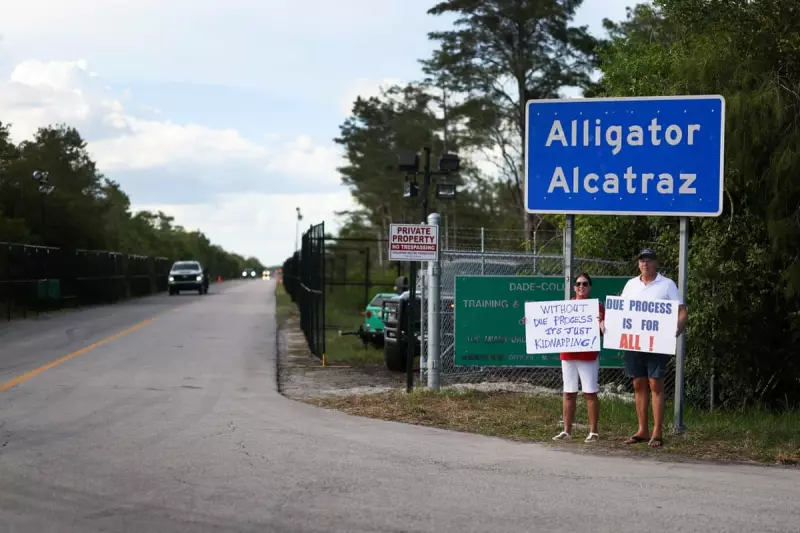
In a case that seems plucked from a Hollywood thriller, a United States appeals court has dismissed a bizarre legal challenge stemming from the discovery of a live alligator on the notorious Alcatraz Island.
The strange saga began when authorities found the reptile, later named ‘Al’, on the grounds of the former maximum-security prison in San Francisco Bay. The court’s recent decision brings an end to one man’s attempt to challenge the legality of the search that led to his arrest in connection with the incident.
A Baffling Discovery on The Rock
The initial discovery sent shockwaves through the Bay Area. How a large, dangerous animal was smuggled onto a high-security island, famed for housing inmates like Al Capone, remains an unsolved mystery. The alligator was found in a area of the prison, prompting a major response from law enforcement and park services.
Legal Challenges Dismissed
The individual implicated in the case argued that the evidence against him was gathered through an unlawful search of his property. His legal team contended that this violated his constitutional rights. However, the 9th US Circuit Court of Appeals upheld the lower court’s ruling, stating that the search was justified and the evidence was therefore admissible.
The court found that the authorities had sufficient cause to investigate, given the serious and unusual nature of the crime. Releasing a non-native predator into a national park is a federal offence, raising concerns not just about public safety but also potential ecological disruption.
Unanswered Questions and Lingering Mysteries
While the legal battle is over, the central mystery persists. The motive behind placing an alligator on Alcatraz remains a topic of wild speculation. Was it a misguided prank, an attempted artistic statement, or something more sinister?
The case has also ignited discussions about the ongoing challenges of securing historical sites against unconventional threats and the persistent problem of illegal wildlife trafficking in the United States.





